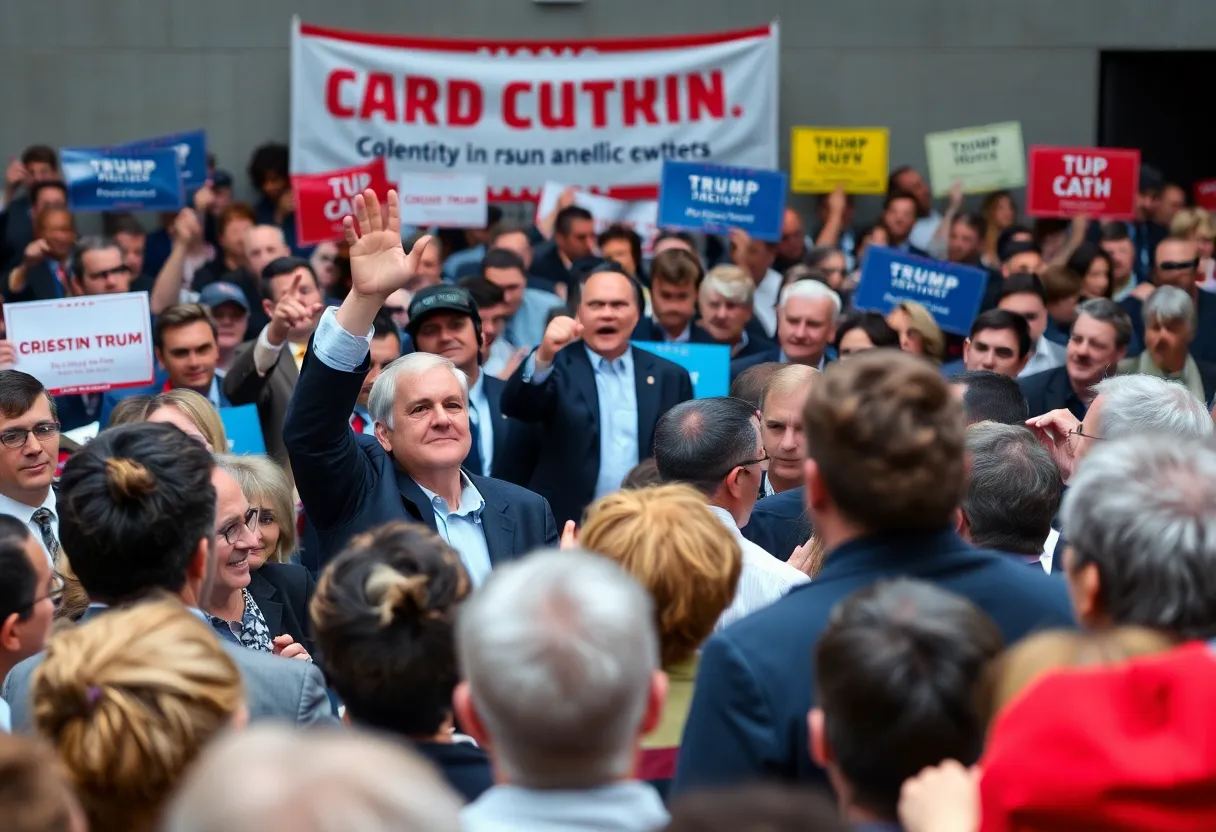News Summary
Elon Musk ignited a political firestorm after a gesture at Donald Trump’s inauguration, which some interpreted as a Nazi salute. The backlash has prompted strong reactions from European political figures and community leaders concerned about the normalization of extreme ideologies. Amidst discussions about freedom of speech and social responsibility, Musk has responded to the accusations, further deepening the divide regarding his intentions. The incident raises significant questions about public accountability for gestures with historical resonance.
The Gesture That Sparked a Controversy
Elon Musk, the well-known billionaire entrepreneur, recently found himself in hot water after a seemingly innocuous gesture at Donald Trump’s inauguration led to heated discussions across Europe. What was meant to show solidarity quickly morphed into a storm of backlash, with some accusing Musk of performing an act reminiscent of a Nazi salute. This development has left many astonished and concerned about the implications of such gestures in today’s political landscape.
Political Backlash Across Europe
Musk’s arm-raising move, which involved pounding his fist against his chest and extending his right arm twice, ignited a fierce backlash, particularly from major political figures in Germany. Analysts and commentators tagged Musk’s actions as *malicious provocation*, raising alarms over potential solidarity with far-right groups. The outcry came swiftly, reminding everyone how delicate the balance is when discussing gestures that could evoke memories of one of history’s darkest chapters.
A Call to Action
Prominent voices, including publicists and community leaders, voiced their disappointment. One influential publicist, a descendant of Holocaust survivors, labeled Musk’s gesture as *disgraceful* and expressed concern over the danger of normalizing such actions within society. This thought resonated with many who view Musk’s level of influence as a responsibility to steer conversations away from extremism.
Community Leaders Raise Concerns
The president of the Jewish community in Munich echoed this sentiment, describing Musk’s actions as *highly disconcerting*. Her worries extended beyond the gesture itself, touching on Musk’s political activities, particularly concerning his connections with the far-right political party Alternative für Deutschland (AfD). Such ties only deepen the fears regarding the normalization of dangerous ideologies.
The Freedom of Speech Dilemma
Amidst the criticism, the German Chancellor stepped in, emphasizing that while freedom of speech is a treasured right, it should not offer support for extreme right ideologies. He dismissed Musk’s alleged endorsements as *completely unacceptable* and called for calm discussions around the implications of such gestures. This plea for rational dialogue highlights the ongoing tension between free expression and social responsibility.
The Response from Musk
Faced with the backlash, Musk took to social media to respond. He derided those comparing his gesture to a Nazi salute, accusing them of indulging in *dirty tricks*. His dismissal of heavy accusations only magnified the divide among observers regarding his intent. **Was it a careless move or a deliberate provocation?**
The Legal and Social Ramifications
In Germany, the implications of Musk’s actions could have legal consequences. A Berlin judge indicated that should malicious intent be established, Musk’s gesture could fall under scrutiny of the law. In Germany and several other European nations, the *Sieg Heil* salute is illegal, signifying the serious nature of such gestures. This raises vital questions about accountability in the context of public figures.
Myriad Interpretations and Reactions
The debate didn’t stop there. The U.S. Anti-Defamation League argued that Musk’s expression was more of an *awkward gesture in enthusiasm* rather than a hate symbol. This viewpoint was shared by some who felt that critics were overreacting. Yet, Democratic politicians weighed in, condemning Musk’s actions and calling out imagery associated with historic extremism. The argument over whether Musk consciously intended to provoke or was simply caught up in the moment continues to swirl.
A Revealing Outlook
As this incident unfolds, it shines a light on larger discussions about the normalization of far-right rhetoric within political discourse. With reactions from far-right groups celebrating Musk’s actions, the implications of his gesture resonate far beyond a single event, leading to widespread conversations about the landscape of modern political engagement.
Looking Ahead
In conclusion, what started as a gesture of solidarity has opened up a Pandora’s box of debates on political symbolism, responsibility, and freedom of expression. The eyes of the world are on Musk now, eagerly waiting to see how this situation develops and what it means for the future of political communication.
Deeper Dive: News & Info About This Topic
- Forbes: Elon Musk’s Salute Sparks Criticism from Foreign Leaders and Democrats
- BBC News: The Gesture That Sparked a Controversy
- The Hill: Elon Musk Gesture Criticism from German Newspaper
- Euronews: Did Elon Musk Give a Nazi Salute?
- New York Times: Elon Musk’s Hand Gesture Ignites Debate
- Wikipedia: Freedom of Speech
- Google Search: Elon Musk Gesture Controversy
- Google Scholar: Elon Musk Nazi Salute
- Encyclopedia Britannica: Nazi Party
- Google News: Elon Musk Speech

Author: STAFF HERE TALLAHASSEE WRITER
The TALLAHASSEE STAFF WRITER represents the experienced team at HERETallahassee.com, your go-to source for actionable local news and information in Tallahassee, Leon County, and beyond. Specializing in "news you can use," we cover essential topics like product reviews for personal and business needs, local business directories, politics, real estate trends, neighborhood insights, and state news affecting the area—with deep expertise drawn from years of dedicated reporting and strong community input, including local press releases and business updates. We deliver top reporting on high-value events such as Springtime Tallahassee, Tallahassee Jazz & Blues Festival, and LeMoyne Chain of Parks Art Festival. Our coverage extends to key organizations like the Greater Tallahassee Chamber of Commerce and United Way of the Big Bend, plus leading businesses in education, healthcare, and insurance that power the local economy such as Florida State University, Tallahassee Memorial HealthCare, and Capital Health Plan. As part of the broader HERE network, including HEREJacksonville.com, HEREOrlando.com, HEREStPetersburg.com, and HERETampa.com, we provide comprehensive, credible insights into Florida's dynamic landscape.




